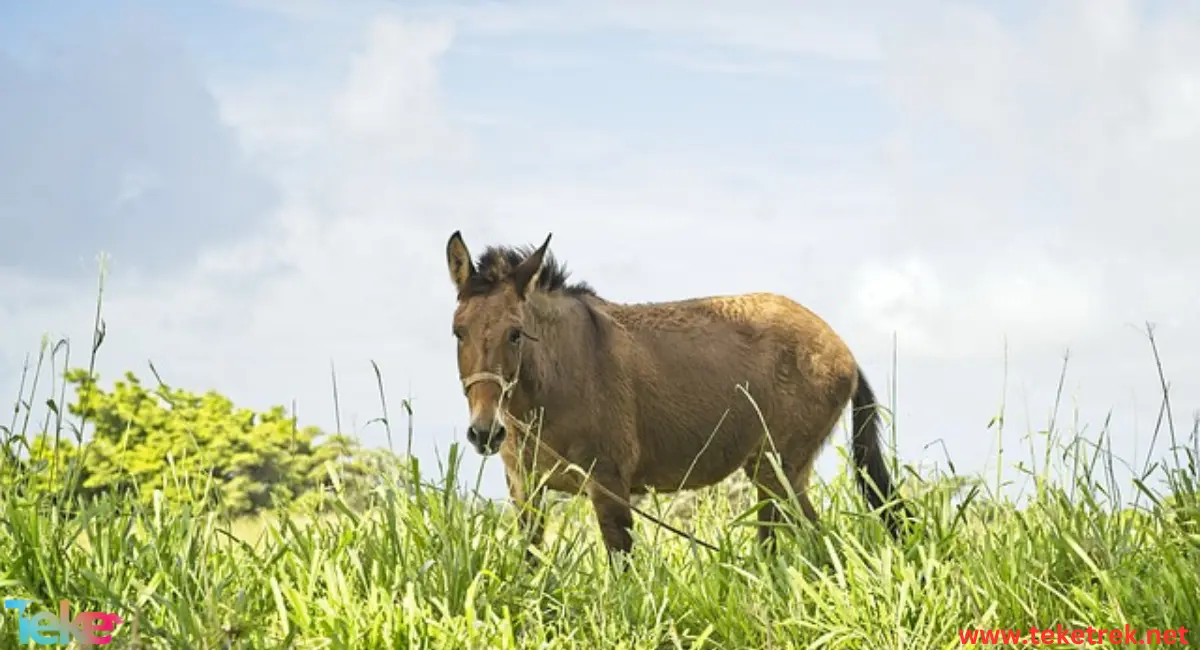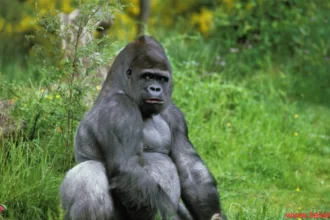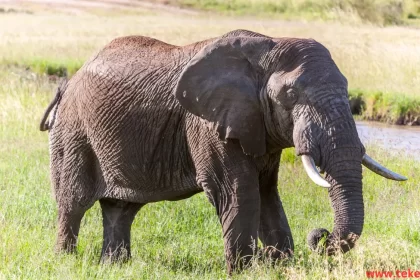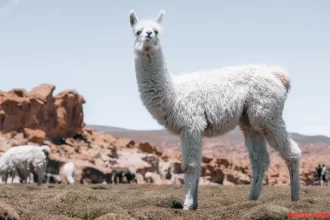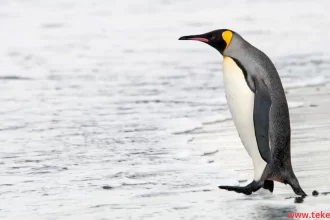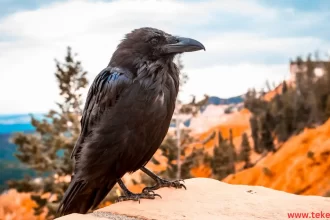Donkeys are domestic and peaceful animals that do not harm anyone. Despite being a constant companion to humans, they have been accustomed to injustice and burdening beyond their capacity. They are often described with the worst qualities and accused of being unintelligent, subjected to merciless beatings, without consideration for their unique and amazing traits. Their remarkable behavior, characteristics, agility, and perpetual activity are often overlooked.
In this article in TekeTrek Website, we will introduce you to the most important information related to this object. Follow along with us.

Information about Donkeys
The donkey Scientific Name is Equus africanus asinus
- The donkey is one of the oldest animals domesticated by humans, serving as a constant companion in helping them bear the burdens of life.
- It is a mammal belonging to the horse family and is also known as the ass. It is the smallest member of the horse family.
- The donkey resembles the horse but differs in size, shape, and endurance.
- Donkeys are characterized by a strong body, a large head, and curved shoulders.
- They have long legs and small hooves that help them run quickly and walk on rough terrain.
- They have a short, thick tail resembling that of a cow more than a horse’s tail, which they use to swat away insects and keep them away from their body.
- Donkeys have large, long, and rounded ears that enable them to hear each other from long distances, and they also use them to cool their bodies.
- Their bodies are covered with short, thick fur that varies in color between black, gray, brown, and white.
- Their height ranges from 125 cm to 145 cm, and their weight varies between 150 and 450 kg depending on the type of donkey and its age.
Habitat of Donkeys
- Donkeys are found all over the world except in the North and South Poles. They live in Asian and African deserts, valleys, and grasslands.
- They adapt well to warm and dry regions, especially desert areas. Wild donkeys inhabit deserts and savannas in North Africa, the Arabian Peninsula, and the Middle East.
- Some species of donkeys are found in Turkey, China, and in the northern regions of Pakistan, India, Nepal, and Bhutan.
Diet of Donkeys
- Donkeys are herbivorous animals and do not consume meat. They feed on grass, leaves, grains, fruits, vegetables, and plant-based fodder such as barley, corn, oats, and peanuts.
- Donkeys need to drink sufficient amounts of water from rivers, lakes, wells, and areas where rainwater collects.
- Their large lips are adapted for grasping plants and pulling them into their mouths, where they tear them with their front teeth and grind them before swallowing.
Can donkeys reproduce?
- Donkeys reproduce through live birth, and a female donkey is called a “jenny” and is ready for mating throughout the year.
- The gestation period for a donkey lasts between 11 and 14 months. The female usually gives birth to a single foal, known as a “foal.” The occurrence of twins is rare, with a pregnancy rate of twins not exceeding 1.7% and a survival rate of twins not exceeding 14%.
- Crossbreeding between a donkey and a horse is possible, and the offspring is called a mule. Crossbreeding between a donkey and a wild donkey result in a hybrid known as a hinny.
- Donkeys can live up to 30 years in some cases.
Facts about donkeys
Here are some lesser-known facts about donkeys:
- Donkeys are known for their patience and can withstand hunger, thirst and fatigue.
- They are considered one of the smartest animals, capable of remembering a route after walking it just once in their lifetime. They are said to be the third smartest animal in the world after horses and primates.
- Their stubbornness is often a result of their natural instinct for self-preservation. If overloaded, they may refuse to move regardless of how much their owner beats them.
- They defend themselves by biting, kicking with their front hooves, or striking with their hind legs.
- Donkeys enjoy grooming each other and refuse unhealthy food or dirty water.
- They experience loneliness when left alone and prefer to be in groups, often enjoying the company of other donkeys, horses, mules, or small livestock.
- Donkeys can go several hours without drinking water due to their ability to store water in their bodies.
- They communicate with each other through braying, snorting, bristling, and even honking, and their bray can be heard from several kilometers away.
- Their braying is considered one of the loudest and most annoying sound on earth, and Donkey sound is mentioned in the Quran as one of the most disliked sounds.
- Donkeys have good night vision and can see well in the dark.
- They are prey to predators such as foxes, wolves, and lions.
- Donkeys do not require many hours of sleep and can suffice with just 3 hours per day.
- They can endure long periods without water or food and withstand high temperatures.
What are donkeys used for?
Donkeys have been valuable and industrious animals, providing significant service to humans for many years.
- Donkeys are used in agriculture and for transporting goods on their backs.
- They are utilized in sports and entertainment, such as donkey races and donkey rides.
- In some cultures, donkey meat is considered to have high nutritional value and is used in preparing meals.
- Some populations, especially in China, rely on donkey milk as an important source of nutrients like protein and carbohydrates.
- The hair or wool produced by donkeys is used in crafting various artisanal products and clothing.
- Donkey urine is believed to have medicinal properties in traditional medicine and is used as a remedy for certain ailments. Additionally, donkey tissues are used in human medicine.
Types of Donkeys
There are many types of donkeys around the world, and they differ from each other in shape, size and color.
- The most common type worldwide is the African donkey, found in various regions of Africa.
- The Asian donkey, which lives in Asia and is larger than the African donkey.
- The wild donkey, considered a wild animal, inhabits wide areas of Asia and North Africa.
- The mountain donkey, living in South Asia and South America.
- The Nubian donkey, considered an endangered species, found in southern Egypt and northern Sudan.
- The rock donkey, characterized by its ability to adapt to harsh environments, lives in the vast deserts of North Africa.
- The mammoth donkey, the largest type of donkey, suitable for those who enjoy trips.
- Miniature donkeys, also known as Sardinian or Sicilian donkeys, are a type of small donkey famous in North America and Italy.
- The Poitou donkey, native to France, is rare and distinguished by its white nose and gray abdomen.
- The American spotted donkey: it has spots.
- The standard donkey, known for fighting predators and guarding other animals.

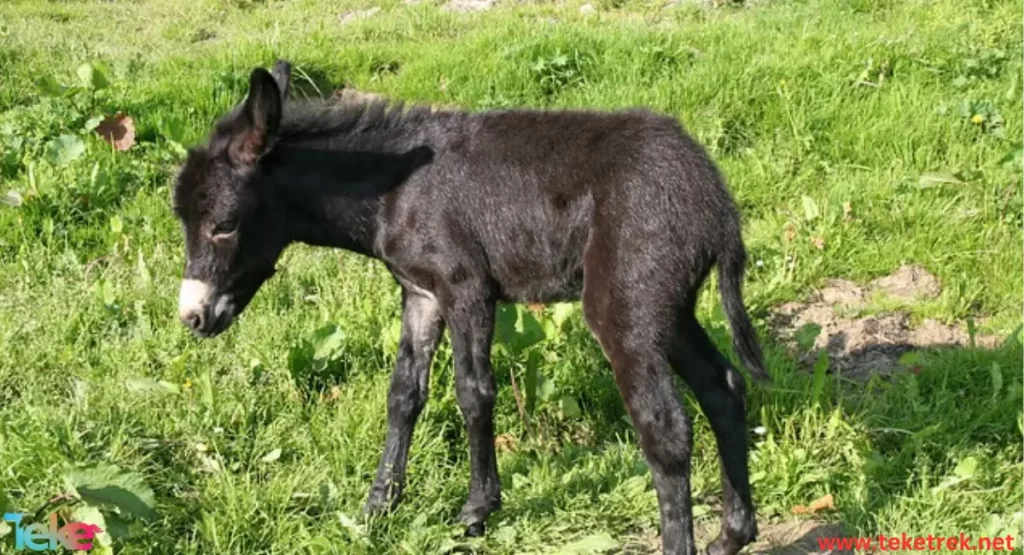
FAQ
- What is the description of a donkey?
Donkeys possess several traits, including their extreme patience and ability to bear burdens, intelligence, adaptability to harsh environments, physical strength, loyalty, and faithfulness in serving humans. They also have a keen sense and the ability to see in the dark.
- Why is a donkey called by this name?
The naming of the donkey dates back to ancient Arabic, where it was referred to as “hamar,” a term indicating an animal known for its strength and patience. Over time, this word evolved to become “donkey” in modern Arabic.
- What is special about donkeys?
Donkeys are special because of their strength, intelligence, patience, versatility, agility, social nature, low maintenance, and protective instincts.
- Is a donkey a mule or a horse?
A donkey is neither a mule nor a horse. A donkey is a distinct species of equid known scientifically as Equus africanus asinus. On the other hand, a mule is the offspring of a male donkey (jack) and a female horse (mare), while a horse is a separate species known as Equus ferus caballus.
- What is the other name for a donkey?
Another name for a donkey is “ass”. Both terms, “donkey” and “ass”, are commonly used to refer to the same animal.
- What is a female donkey called?
Female donkey is called a “jenny”
In conclusion, this patient creature, created by God to endure our humiliation, needs our mercy. It continues to serve us excessively without resentment or complaint. Let us stop denigrating and describing it with derogatory traits. Instead, let us work on appreciating its importance and value.

